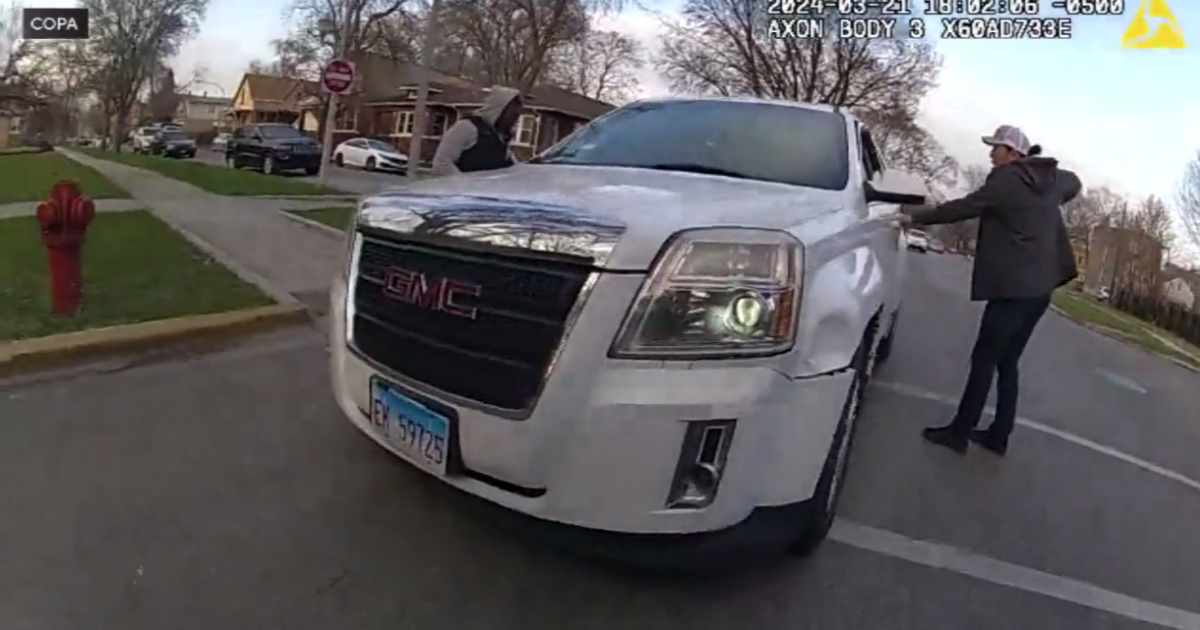Raccoons Invading Along Lakefront
CHICAGO (CBS/WBBM) -- Dark-eyed, wild bandits have invaded both the north and south lakefront, but officials are working to out-smart them.
As WBBM's Newsradio 780's Bernie Tafoya reports, the Chicago Park District tells says about 120 raccoons have been trapped between Belmont and Montrose harbors, as well as the harbors off Jackson Park.
LISTEN: Newsradio 780's Bernie Tafoya reports
Podcast
"There's been some reports that they're living under docks and ransacking boats and being aggressive toward people. So obviously it's a public safety issue," Maxey-Faulkner tells the Chicago Sun-Times.
Maxey-Faulkner said the park district has had to remove raccoons at other parks and there have been complaints about them on the lakefront in the past.
But nothing like this.
"It is not unusual to receive a report of a raccoon in a park on occasion, but we don't recall a time when they have been in such abundance," Maxey-Faulkner said.
Complaints from boaters in particular started coming in last summer and the park district decided to tackle it this spring. Westrec Marinas, which manages the harbors, subcontracted with suburban Ampest Exterminating & Wildlife Control to trap and euthanize the animals. Money for the project — less than $25,000 — was taken from the harbor budget, which Maxey-Faulkner said is funded by boat slip and concession receipts.
"They were calling this, classifying this as an infestation," Dan Peifer, Ampest service manager, referring to the call he got from officials about the raccoon problem along the lakefront.
His firm has a permit from the Illinois Department of Natural Resources to remove nuisance animals. In 2009, the most recent year for available statistics, private firms and animal control offices in the 8-county region that includes Cook County, removed nearly 17,000 so-called nuisance raccoons, according to the IDNR.
The lakefront raccoons are caught in live cage traps that are checked daily — usually in the morning — and the animals are removed accordingly, Peifer said.
State law allows trappers multiple options in cases like this — from releasing the animal within 100 yards of where they were caught to turning them over to a veterinarian who is a licensed wildlife rehabilitator to "humane" euthanization, according to IDNR spokesman Tim Schweizer.
While he wasn't familiar with the raccoon problem on Chicago's lakefront, he did say that euthanization in many cases is the only option when there's "overpopulation."
"You don't want to take a problem from one location and create a problem somewhere else," he said.
In this case, the animals were taken to Ampest's facilities, where they are placed in a CO2 chamber, Peifer said.
Complaints about raccoons in city neighborhoods have been increasing in recent years. Last year, Ald. Robert Fioretti (2nd) called for a crackdown on raccoons after complaints in his West Side ward – particularly between Polk and Lake Streets, from the United Center westward.
As far back as 2003, animal control professionals responded to more than 65,000 service calls, and the most common problem was raccoons in people's homes, according to an archived news release from the Illinois Department of Natural Resources.
Department wildlife diversity program management director Bob Bluett said in the 2004 news release that the raccoon population doubled between the early 1980s and the mid-1990s. In the 1970s, hunting had kept the raccoon population in check, but the population ballooned after the market for fur coats went bust, Bluett said in the 2004 release.
Raccoons are especially abundant in the Chicago area, and urban sprawl has eliminated the green areas where trappers used to go after them, the release said.
"Those in-between wild spaces are strip malls and fast food restaurants," Bluett said in 2004. "It is difficult to hunt and trap raccoons in ways that reduce urban populations."
And while raccoons can be cute, they can also spread dangerous diseases.
Raccoon feces can carry roundworms, which can hatch in the human intestine and cause infections of the brain and spinal cord, and infections of the eye that can cause blindness. There is no effective cure for the disease, according to North Dakota State University.
In addition, while raccoons will usually flee before attacking or biting someone, rabid raccoons can be highly aggressive.
Charlotte Newfeld, steward of the Bill Jarvis Migratory Bird Sanctuary along the lakefront near Addison Street, tells the Sun-Times the raccoon problem can be squarely blamed on other humans.
"This is all the fault of the general public that comes out and tries to feed what they think is a Disney-like creature, which it's not," Newfeld said. "We've had feeders out there, whom we've had police arrest, and the still continue to give them food."
The Chicago Sun-Times' Lisa Donovan contributed to this report, via the Sun-Times Media Wire



